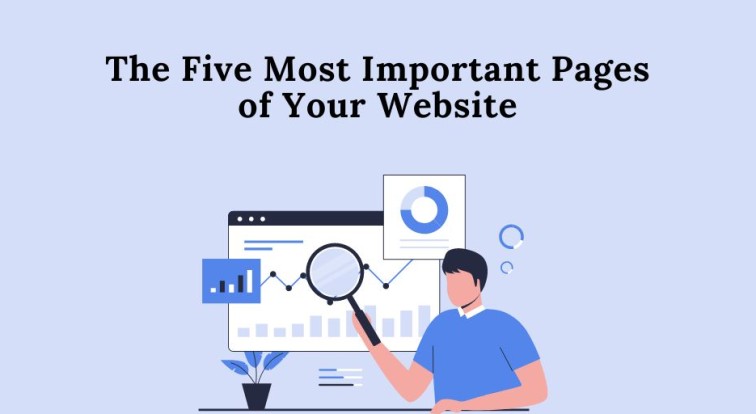You may have heard the analogy that a website is like a car… or a house… or the clothes you wear. What they all have in common is that they help to tell others about who you are. Your website is the best chance you have at making a great first impression on potential new customers online.
Whether you sell jewelry or counseling services, your site must tell a compelling story of who you are, how you can help visitors, what you offer, and how people can contact you. This virtual welcome gives people peace of mind.
Including the most important pages of your website is essential for creating a user-friendly experience that meets the needs and expectations of your website visitors.
The Five Most Important Pages of Your Website
Right pages in your website are a simple and efficient way to improve the success of your website. In this article, we’ll explore the top five most important pages of your website you should consider including.
1. Home Page
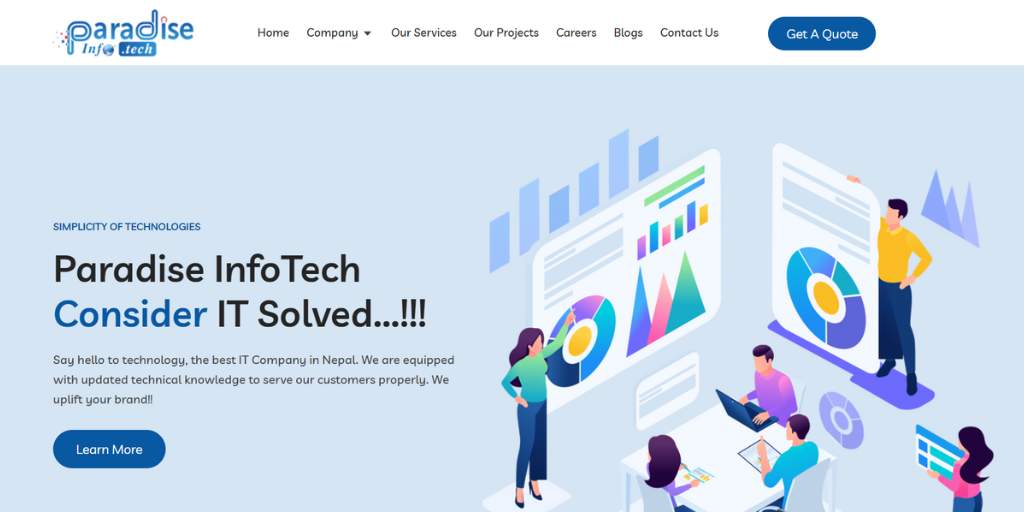
Although there may be additional popular entrance pages on your site, the majority of users will likely arrive at your homepage. Thus, it is one of the most important pages of your website. Potential customers frequently form their first impression of a company from the homepage of its website.
A link for clients to reach out to you is also included on the homepage. It provides an overview of your company and identity, as well as how the website can be of assistance to its visitors. A homepage must be minimalistic and clear. Clutter should be avoided, as it can discourage the visitor.
Avoid overcrowding your homepage with unnecessary images. Additionally, you should avoid crazy color patterns. Effectively represent your modest business by striving for a minimalist design.
When developing a new website or redesigning an existing one, gather suggestions from potential customers. Conducting a small-scale soft launch will provide invaluable insights for improving your homepage.
Your homepage ought to enhance the impression that site visitors have of your small business. It serves as a means to increase conversions and brand recognition.
2. About Us Page
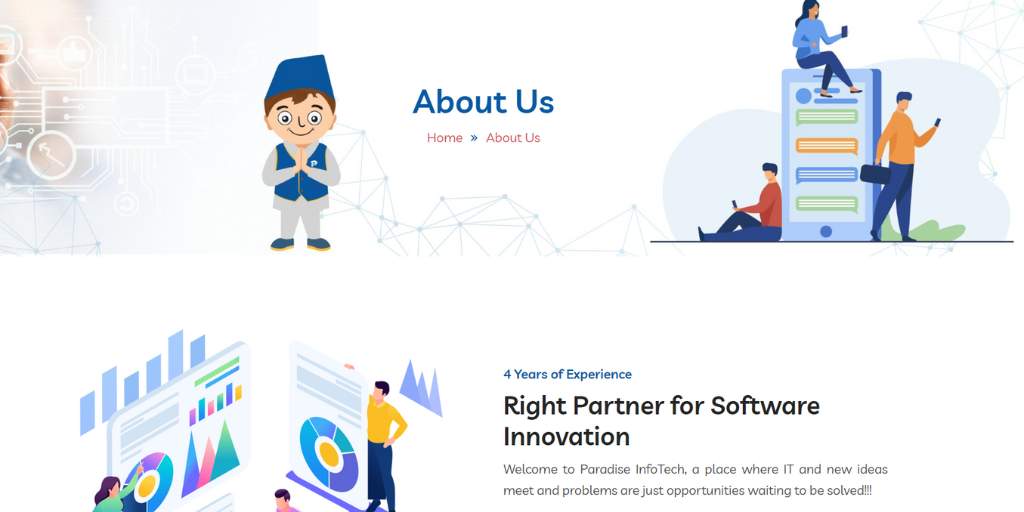
The About page will be the primary stop for users who have gained an overview of your brand and website and are interested in further exploring your brand.
Presenting your brand and showing your abilities in the field will be within this platform. Executed effectively, it has the potential to generate a quick lead conversion or establish a memorable impact that affects every page of the website.
On your about page, it is also beneficial to include real images of your team. In many cases, this increases the level of trust that website visitors have in your organization and gives a personal touch to your site.
Establishing brand credibility and establishing a connection with the customer are critical functions of the about us page. Additional content that may be featured on this page comprises testimonials, references to completed projects, honors and recognitions, and so forth.
3. Blog Page
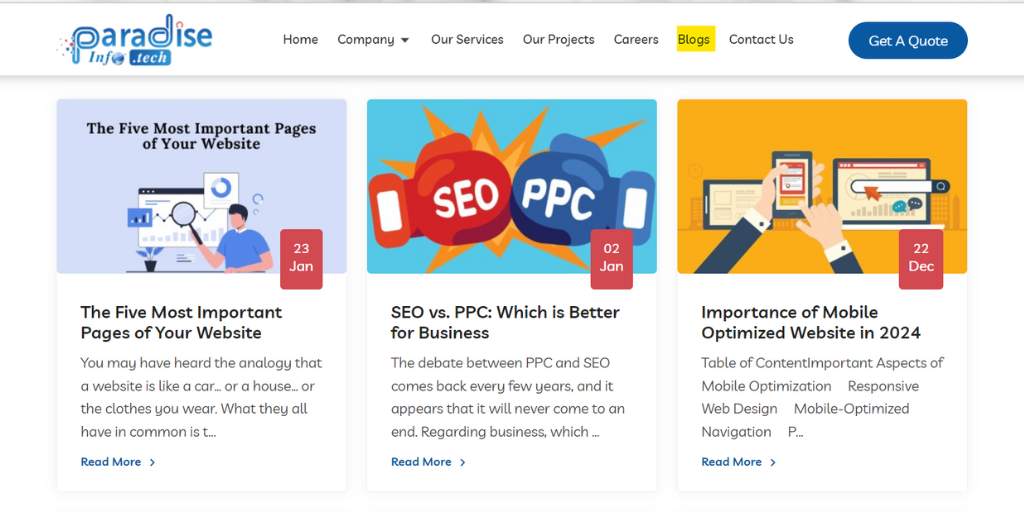
It’s no secret that blogging is an effective way for optimizing a website for keywords linked to a business. It increases search engine optimization and helps bring people back to your main website.
A blog website should be easy to explore with blogs sorted topic wise. Information without order creates chaos therefore keeping everything nice and orderly. A frequently updated blog page with numerous graphic elements will get visitors to your website faster than anything else.
Every piece you produce should show off your authority in your area, convey a little about your brand, and encourage readers toward a conversion. As your archive of postings fills up, your Blog becomes increasingly crucial to your search ranks—so don’t overlook it.
4. Products/Services Page
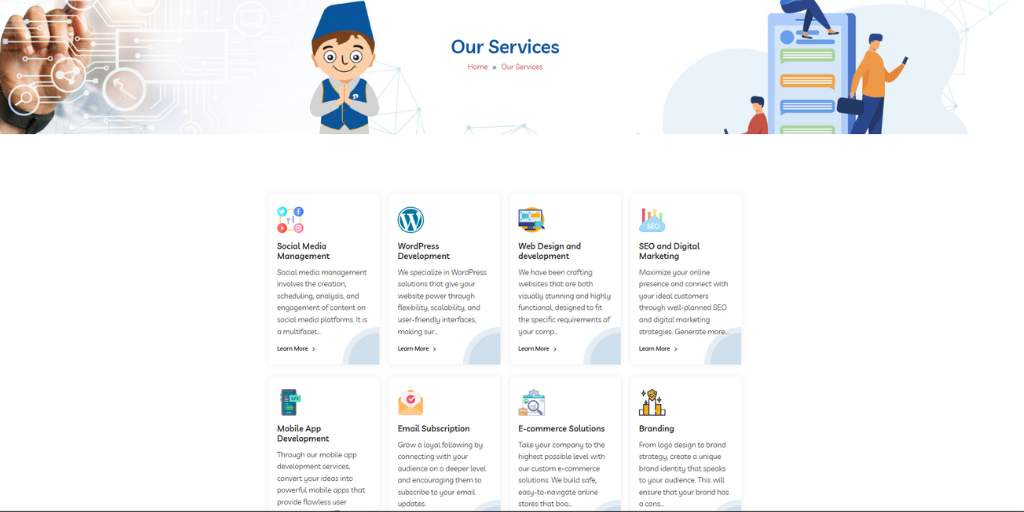
Whether you’re selling products or services, these contents are important to be in the forefront of your website. Your website needs to showcase exactly what it is you are offering, and it should be very precise.
Depending on the nature of your business, this could range from a single page listing services to an entire online store. Regardless of your strategy, provide enough information for potential clients to fully understand the advantages of your products or services and how they differ from your rivals.
Furthermore, provide a clear call to action for future steps if someone has an interest in your products or services, such as "buy now" or “contact you for more information.”
5. Contact Us Page
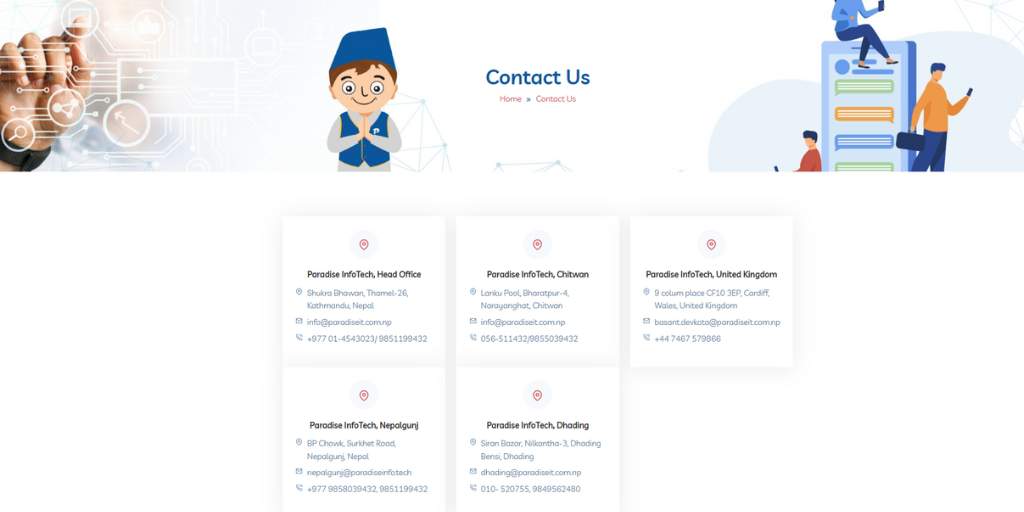
The contact us page offers some of the most useful information on the website. Visitors want to know how to reach you. And they will not want to look for it. Put all of the necessary information above the fold.
For many startups and freelancers, the contact us page is the primary lead generation tool on their website. This is typically their primary source of revenue.
Whether your company has a phone number, a calendar scheduler, an appointment booking app, a contact form, or an email address, this is where potential customers choose to contact a company representative to learn more about its products and services.
Bonus Important Pages of Your Website
With these five most important pages of your website, there are additional essential parts of website you can consider using too, such as:
1. Landing pages
If you're doing any online marketing (which you should), you'll need to have landing pages on your site. Landing pages are often centered on a particular topic and have a call to action designed to generate leads.
2. Sitemap
The sitemap is a page that lists all of the pages on your website. This is a useful fallback option for visitors who are unsure where to go or are looking for a certain page.
3. 404 Error Page
Too often, 404 pages are left unfinished. A 404 page allows you to express yourself creatively while also apologizing to your users. A well-designed 404 page can help keep visitors on your website while also assisting users in locating what they're searching for. You may even apply a 404 page to increase conversions.
4. Privacy Policy Page
Many businesses have online stores that collect customer information, so it's essential to disclose how you collect, use, and protect their information.
While having a privacy policy is the right thing to do, some laws explicitly require businesses to have one.
5. Frequently Asked Questions (FAQ)
A frequently asked questions page can be a helpful resource for answering common questions. If you are frequently contacted by website visitors looking for the same information, try putting it to a FAQ page so that customers may locate it on their own.
Conclusion
Keep in mind that whatever pages you eventually include on your website are essential and those essential parts of website should be optimized for the audience you are targeting. Use analytics to monitor how your pages are performing and make changes as needed. Continually enhancing your website content will lead to a more successful website overall.


